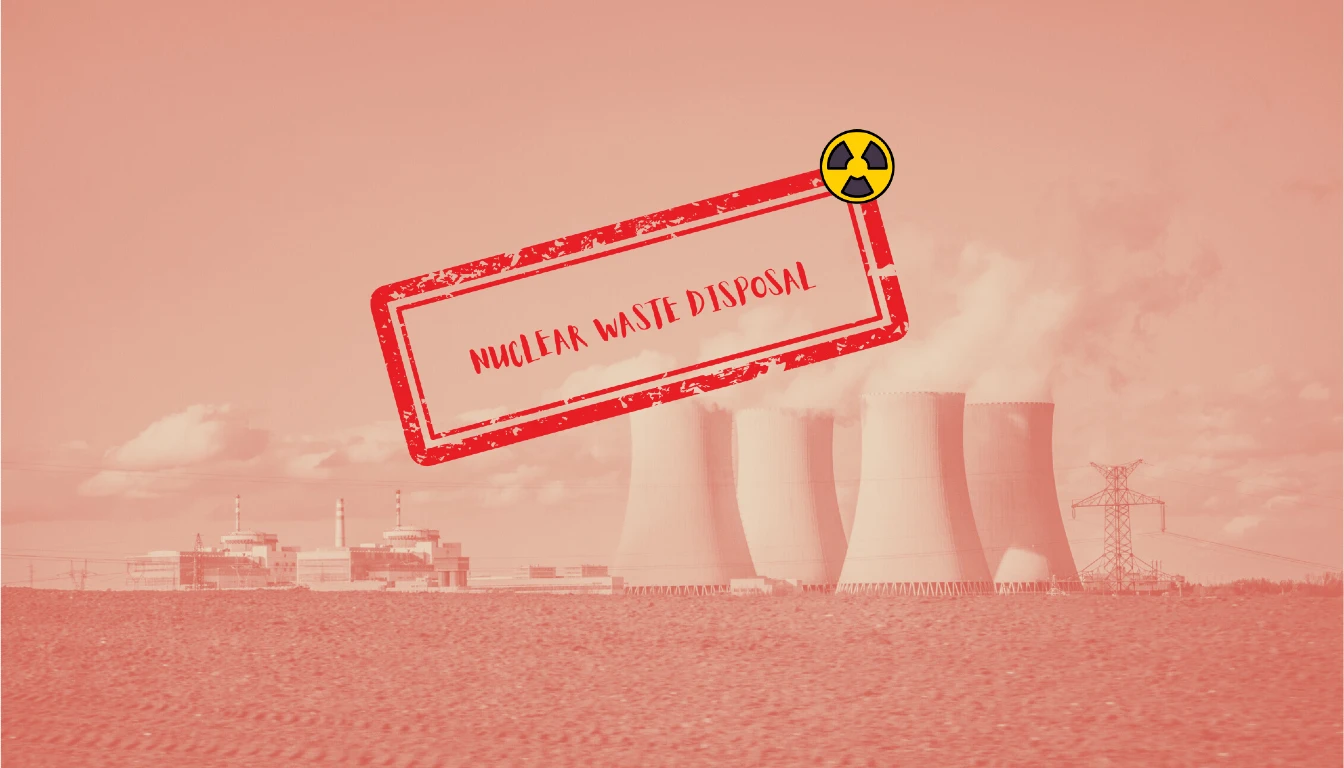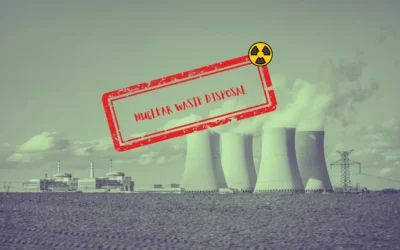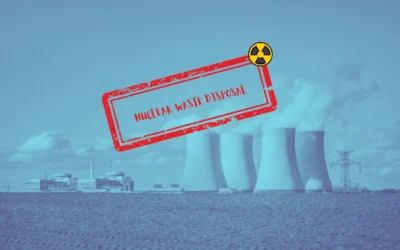Opinion by nuclear waste policy expert, Roy Payne
With nuclear power being touted as a key low-carbon solution to meeting rising global energy demand and mitigating the impacts of climate change, its achilles heel – managing nuclear waste over millennia – requires a sociopolitical, rather than a technical, response.
Safely packaging nuclear waste, and mining deep beneath the earth, are well-established practices rather than risky novel technologies. Highly radioactive waste is currently stored in canisters that you can stand beside with nothing registering on the Geiger counter. We’ve been digging mines for two thousand years. But public anxiety over nuclear, and public cynicism of established science, cannot simply be salved through ‘education’ and ‘information’ campaigns alone.
The international nuclear community has long recognised that the solution to disposing of nuclear waste is a ‘political’ rather than a ‘technical’ issue. However, the sector has traditionally constrained itself to addressing public concerns as a kind of STEM exercise. That if only people understood the science, all would be well. However, ‘conversion’ therapies tend not to achieve their intended outcomes, and can generate a strong backlash.
It will be necessary to explain complex science, but such explanation alone will not be sufficient to take a community on the long and contentious journey involved in finding sites in which to dispose of nuclear waste. A different perspective and approach is required – one that is rooted in the ‘political’ sphere, through the eyes of those communities impacted.
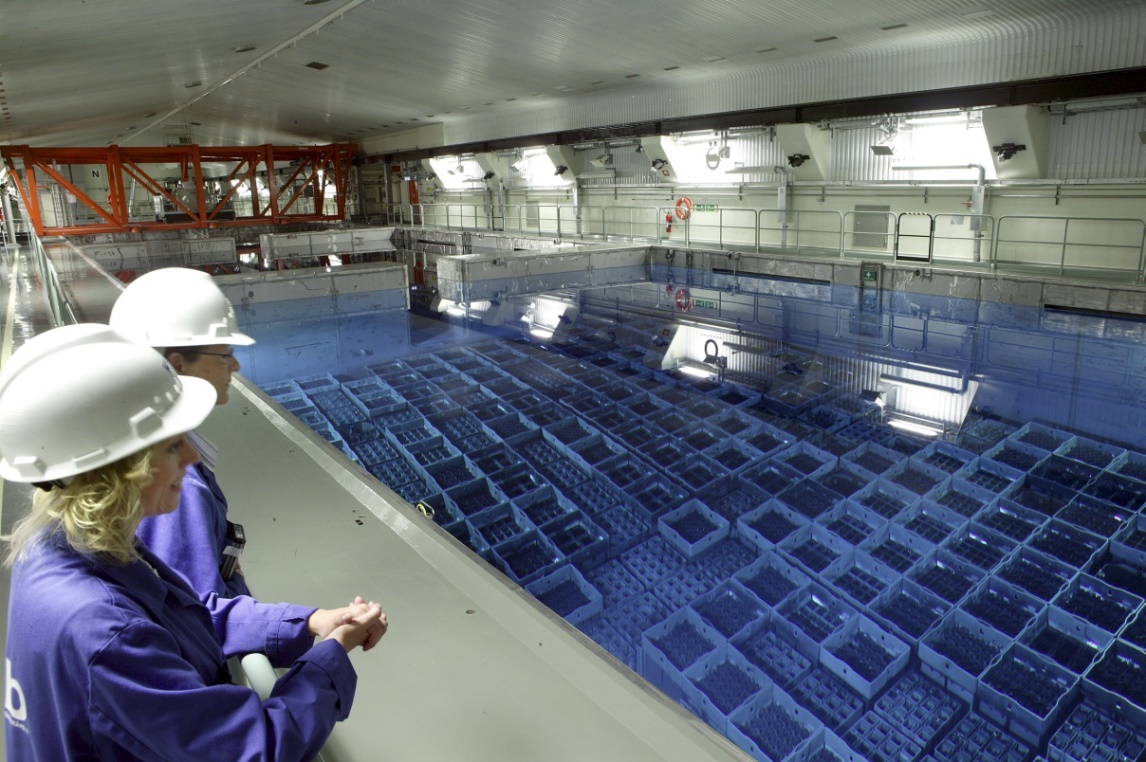
Central Interim Storage Facility (CLAB), Sweden. A storage pond for waste on its way to permanent disposal. Image: SKB
There is already international agreement that the technical solution (called ‘geological disposal’) also requires community ‘consent’ (a political rather than scientific construct). But what does ‘consent’ mean, and how is it achieved in different political systems and cultures – even within western, liberal democracies one size will not fit all.
Perhaps the nuclear sector needs to stop asking the question “what do we need to do to convince a community to let us build a nuclear waste facility”, and instead start asking the question “what do communities need so that they are able to willingly engage in a process with us”.
Because there are commonalities to the way in which communities around the world react to being identified as a potential host for a nuclear waste disposal facility (aka ‘repository’). And commonalities in their ability to meaningfully and equitably participate in a consent-based process. It is by exploring these commonalities, from the community’s (not the industry’s) perspective, that core principles can be developed to help countries implement a successful process in their own territory.
Typically, around the globe, the affected communities tend to be isolated, under-developed rural or coastal communities. They are overwhelmed by the sheer scale of the exercise, by the legions of scientists, lawyers, regulators and other governmental and nuclear industry ‘experts’ assuring them all will be safe, just trust us. In such circumstances, the community’s ability or willingness to trust is in short supply.
More importantly, communities have little confidence that they can participate meaningfully. They have neither the skills, expertise or human resources to engage in complex science and a decades-long process, to effectively protect and promote their own interests. They sense an imbalance of power. Under a consent-based system, they have simply opted to not consent to even have an initial conversation.
Fortunately there are signs that the international nuclear community is beginning to recognise this. Later in 2025 both the International Atomic Energy Agency (IAEA), and the Nuclear Energy Agency (NEA-OECD) will hold conferences, with “empowering communities” on the agenda.
We are at a stage in human development where the challenges facing the species require long-term planning and decision-making. There are no easy options. There are pay-offs to be made. We do not have the habit of making such long-term decisions, driven as we are by the electoral cycle, or the preference for making short-term gains that require the minimum pain.
This is as equally true for climate change solutions, or the large-scale implementation of renewable technologies, as it is for the disposal of nuclear waste. Publics around the world resist change they feel is being foisted upon them – even the Chinese government has backed down in the face of riots against proposed nuclear facilities.
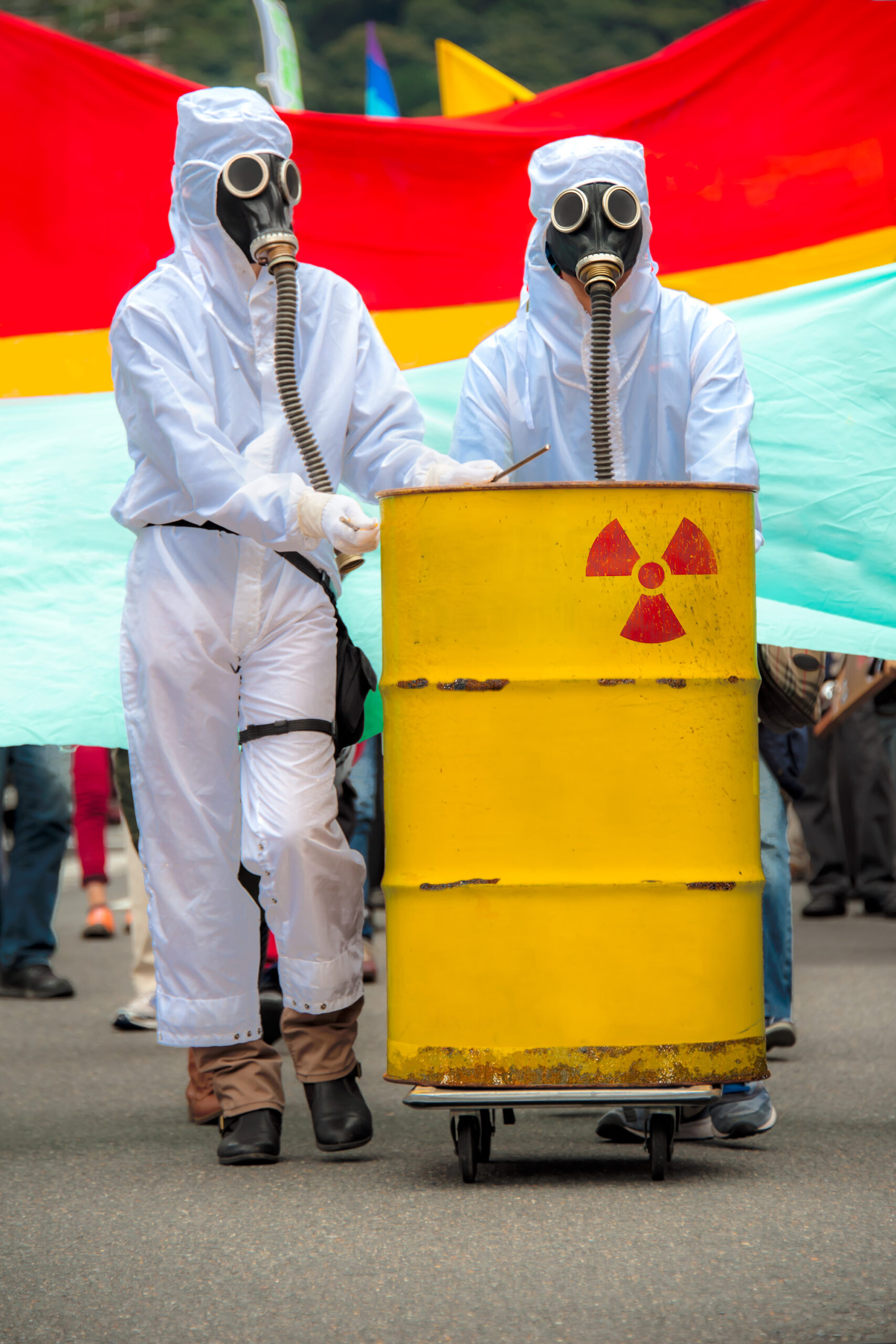
Local communities can react with hostility towards storage of nuclear waste near their homes.
The internationally-agreed “consent-based” approach creates the opportunity to engage the public in a different way, but requires investment in communities’ capacity to meaningfully contribute to local decisions that contribute to global needs. Cleansing the planet’s surface of the nuclear waste we already have, and enhancing the ability to implement large-scale low-carbon, renewable and nuclear energy infrastructure projects, are critical needs.
If we fail to equip communities to engage in complex, long-term and difficult decisions, we will fail the planet, and ourselves.

